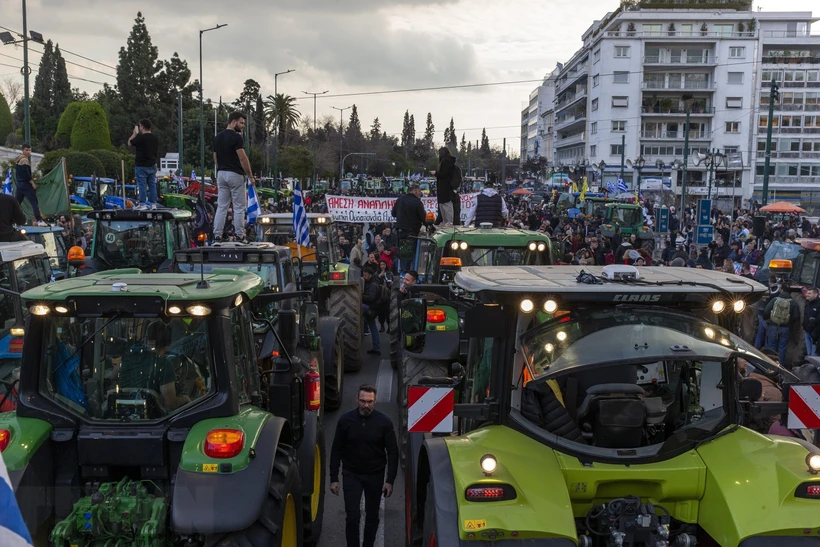The protests have caused EU leaders to worry that they could benefit far-right factions in the upcoming Europe...
The protests have caused EU leaders to worry that they could benefit far-right factions in the upcoming European elections in June this year.
 Greek farmers protest for financial support in the capital city of Athens on February 20, 2024. (Photo: THX/TTXVN)
Greek farmers protest for financial support in the capital city of Athens on February 20, 2024. (Photo: THX/TTXVN)
On February 22, the European Commission (EC) proposed to relax some environmental requirements for farmers, simplify management, and reduce on-site inspections to calm down the protests.
This proposal comes as farmers in many European Union (EU) countries from France to Poland have been protesting and selling products at discounted prices due to their disagreement with what they perceive as excessive environmental requirements and issues with cheap imports.
The protests have caused EU leaders to worry that they could benefit far-right factions in the upcoming European elections in June this year.
On social media X, EU Commissioner for Agriculture Janusz Wojciechowski stated: "The message from the farmers is very clear. In response to this message, the EC has identified a series of EU-level actions that can help reduce the administrative burden on farmers in the near future."
The EU affirms that it is listening to farmers' concerns, and the aforementioned proposals are part of the bloc's concessions to reassure farmers.
The latest proposals will be discussed by EU Agriculture Ministers on February 26, including reducing requirements for farmers who have converted their land from livestock farming to grassland.
Additionally, the EC also plans to change the way on-site inspections are conducted to reduce 50% of inspections for farmers.
In recent weeks, the EU has made some concessions after farmers across Europe united against the Common Agricultural Policy and the upcoming EU Green Deal regarding their difficulties.
These concessions include extending the suspension of regulations on fallow land and strengthening measures to prevent the flooding of the EU market with Ukrainian imports under the duty-free scheme proposed following the Russia-Ukraine conflict.
Via Vietnamplus